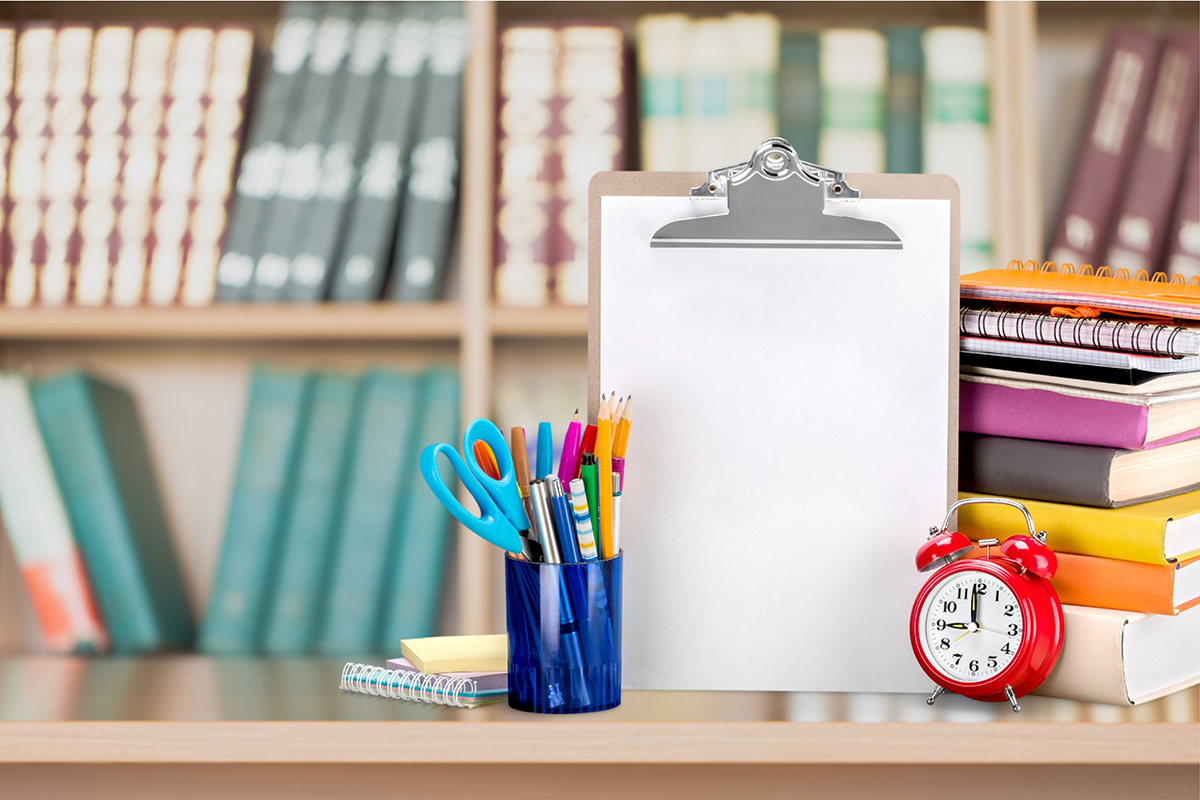The last page of any essay or research paper is the reference page. The reference page is simply a list of all the sources that you used in your essay or research paper.
A professional reference page contains all the sources of information you analyzed to compile the contents of your essay or research paper.
When writing a paper, journal, or any kind of research document, you will need to do some research on the topic, supporting your arguments with different sources. Hence, any information you use which does not originally belong to you must be referenced.
Here is a list of sources that you must reference when you take information from them:
- Published books and journals
- Newspapers, magazines, or marketing media
- Videos, documentaries, or any related media
- Websites and other online sources
- Interviews from tutors, lecturers, and such
- Or when you use images or graphics
Free Templates
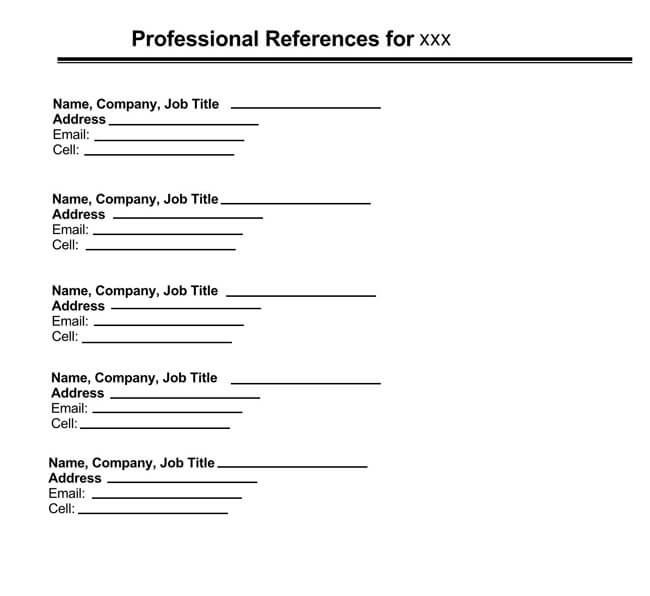
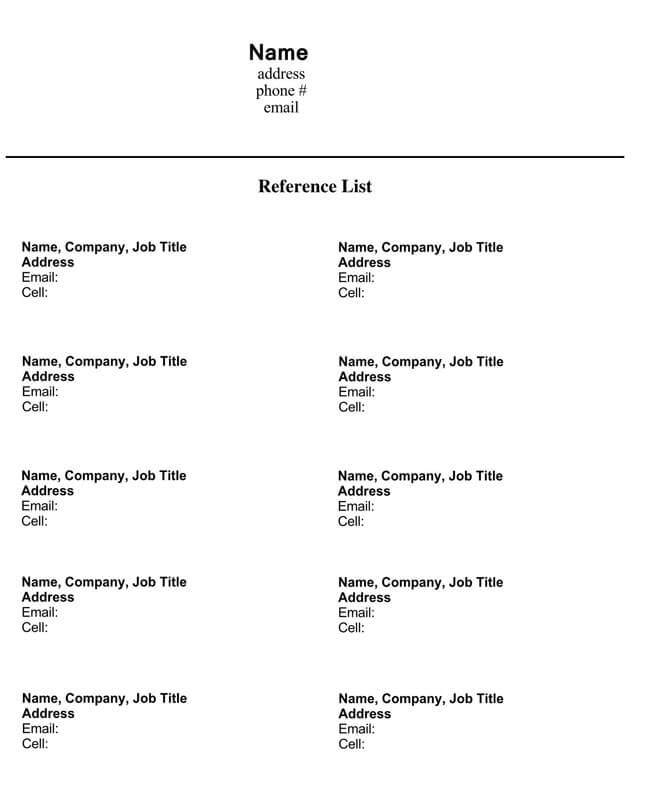
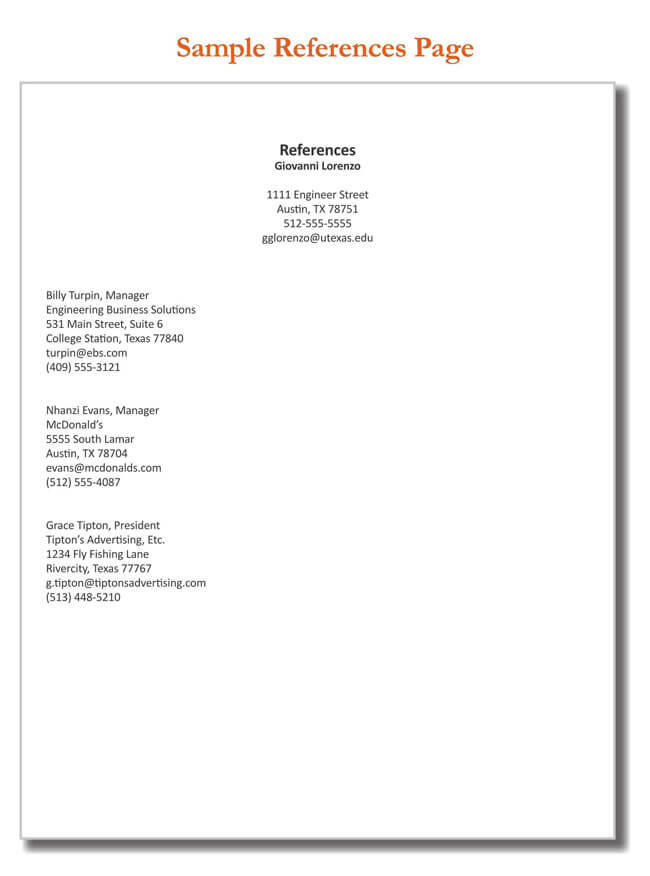
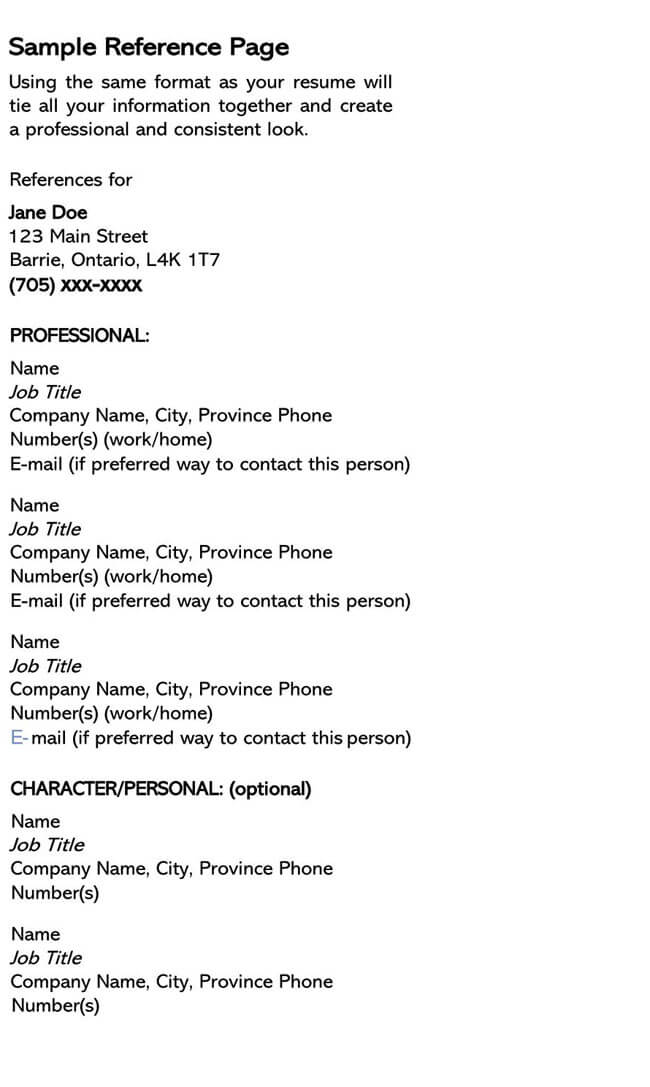
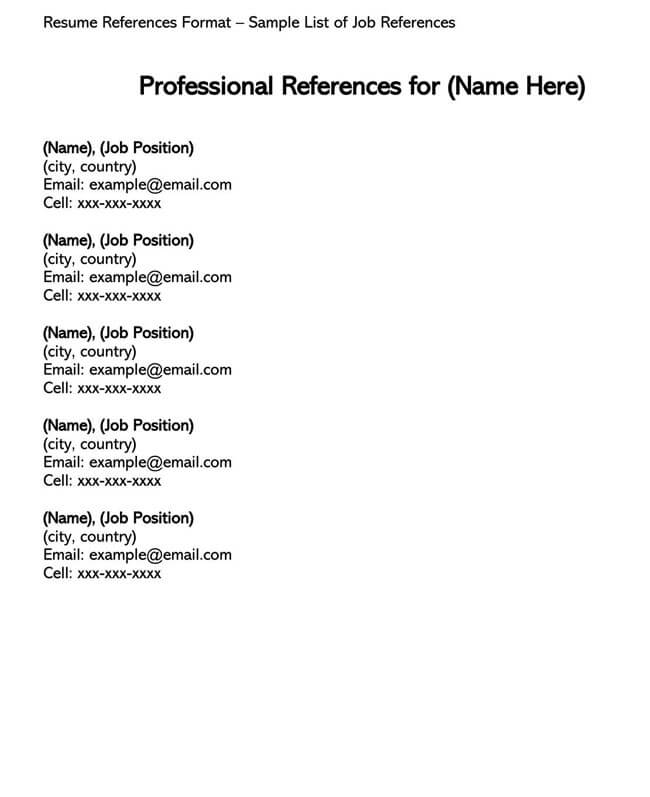
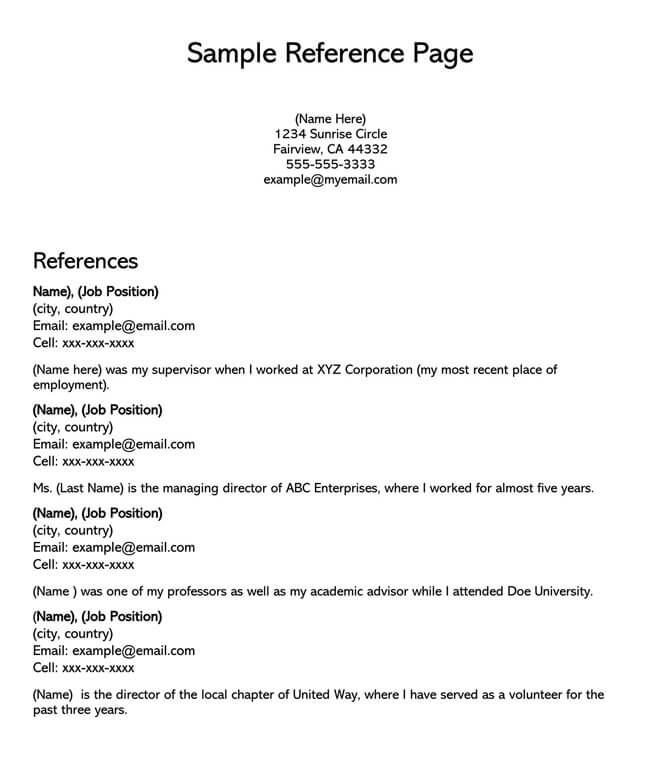
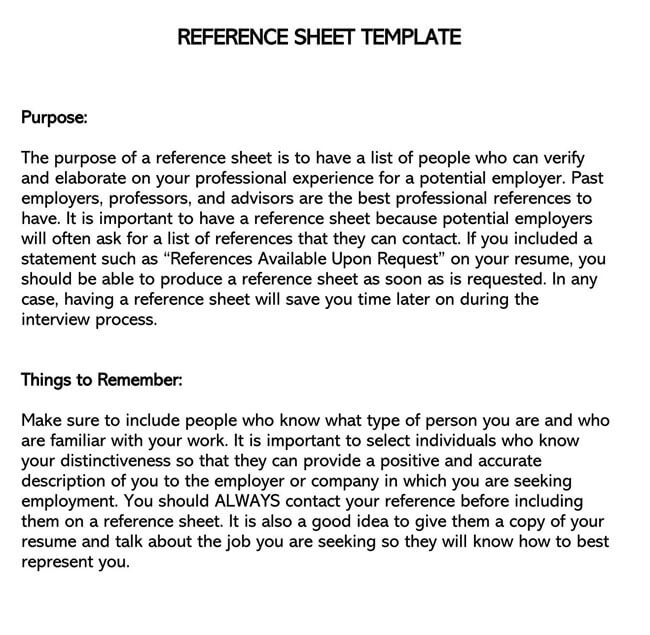
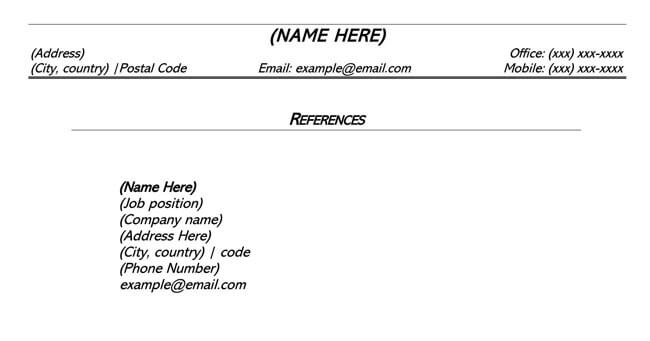
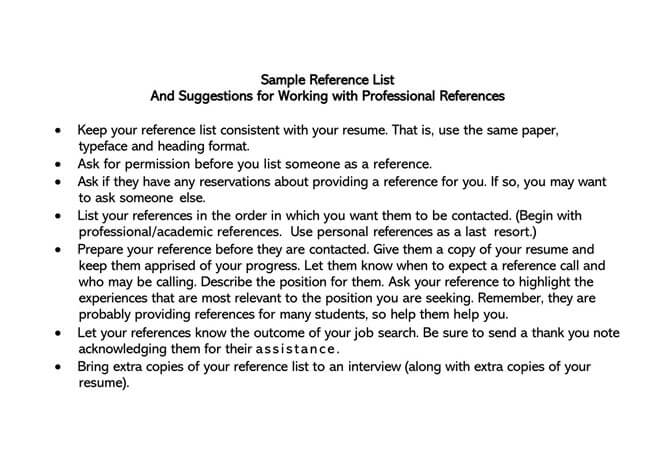
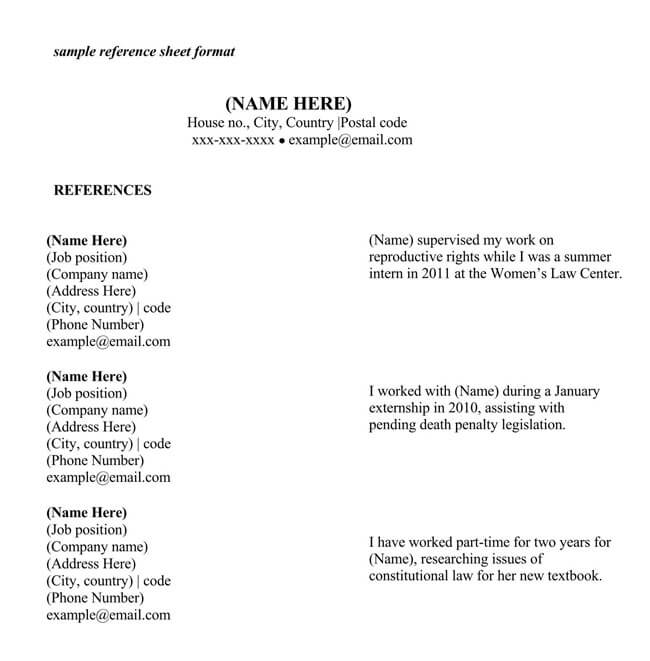
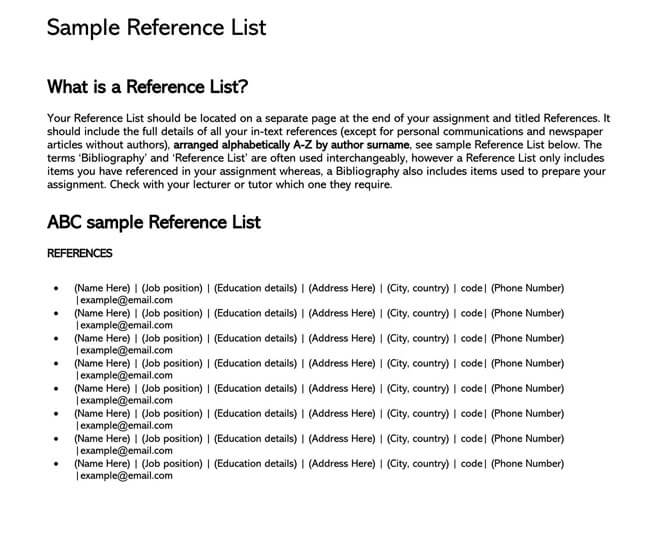
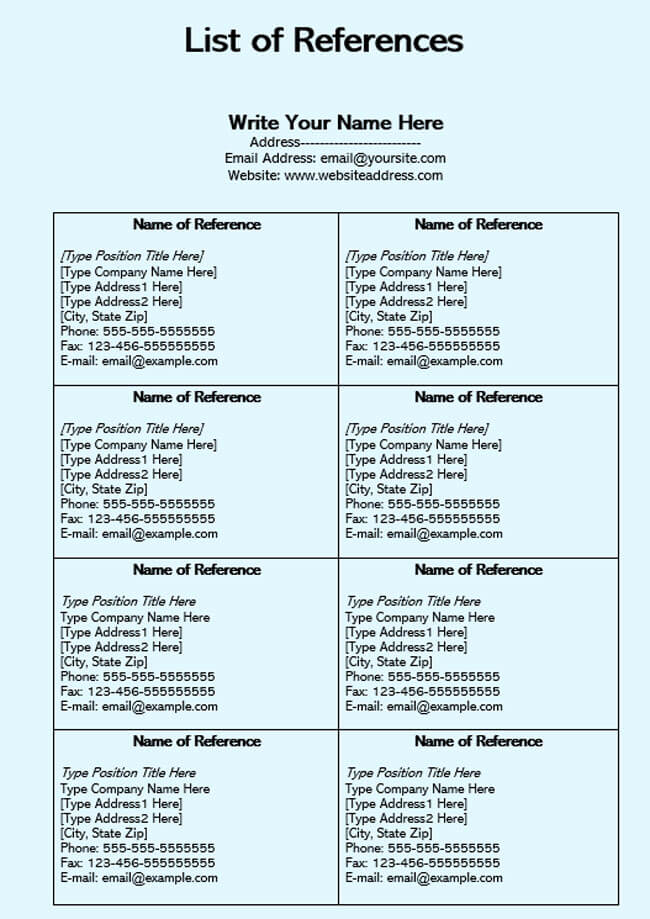
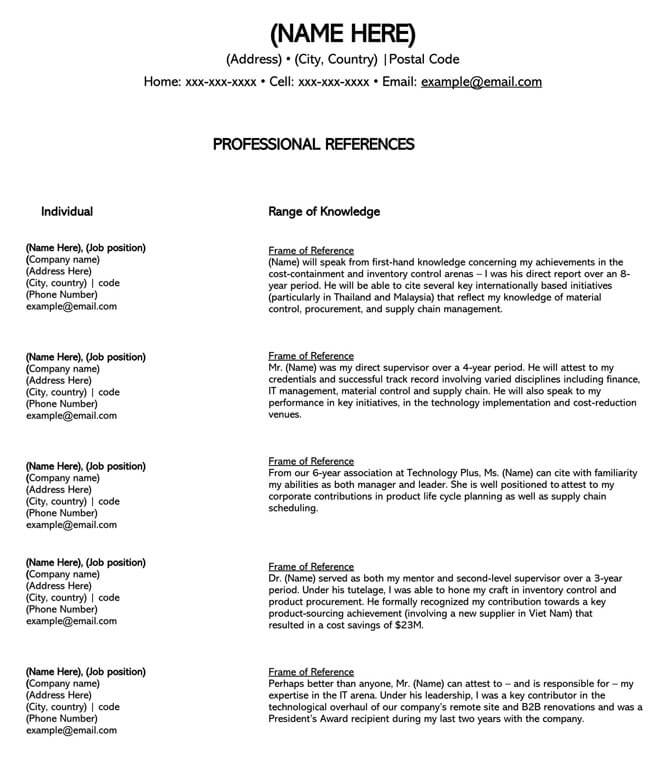
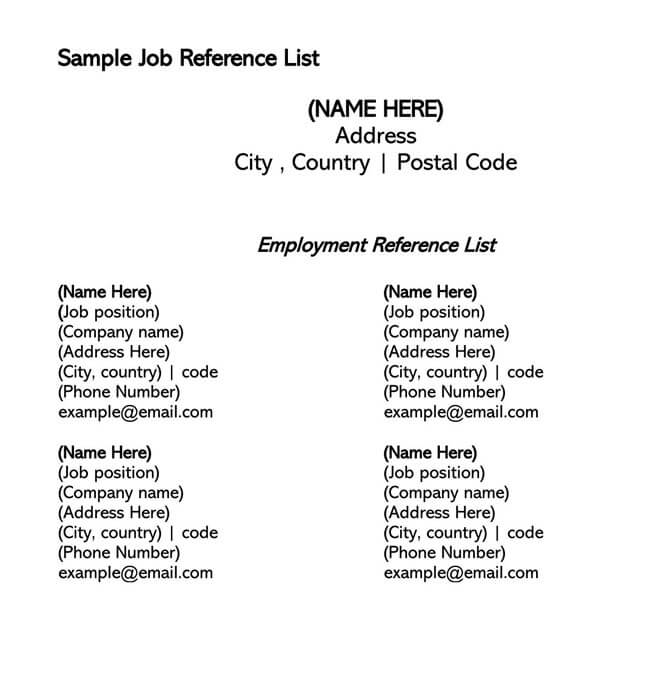
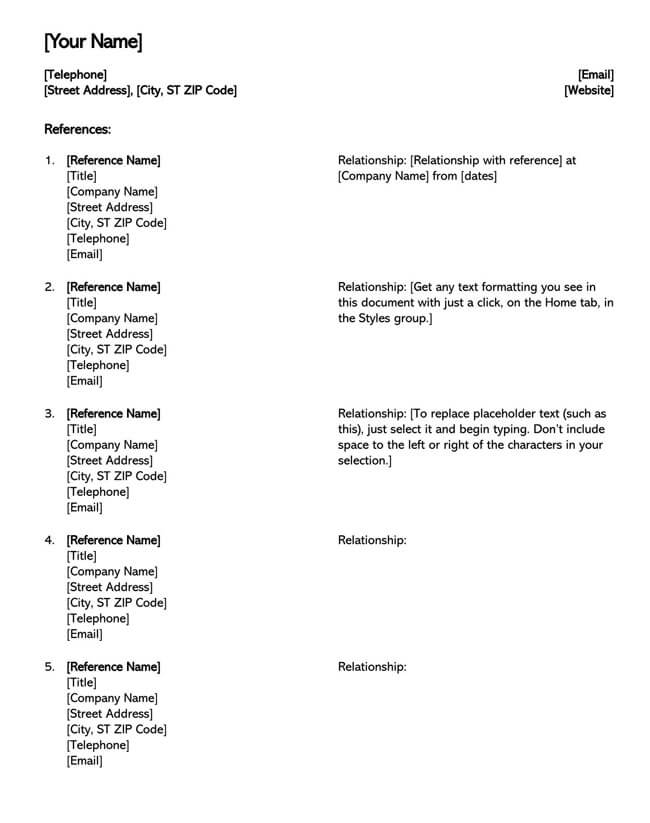
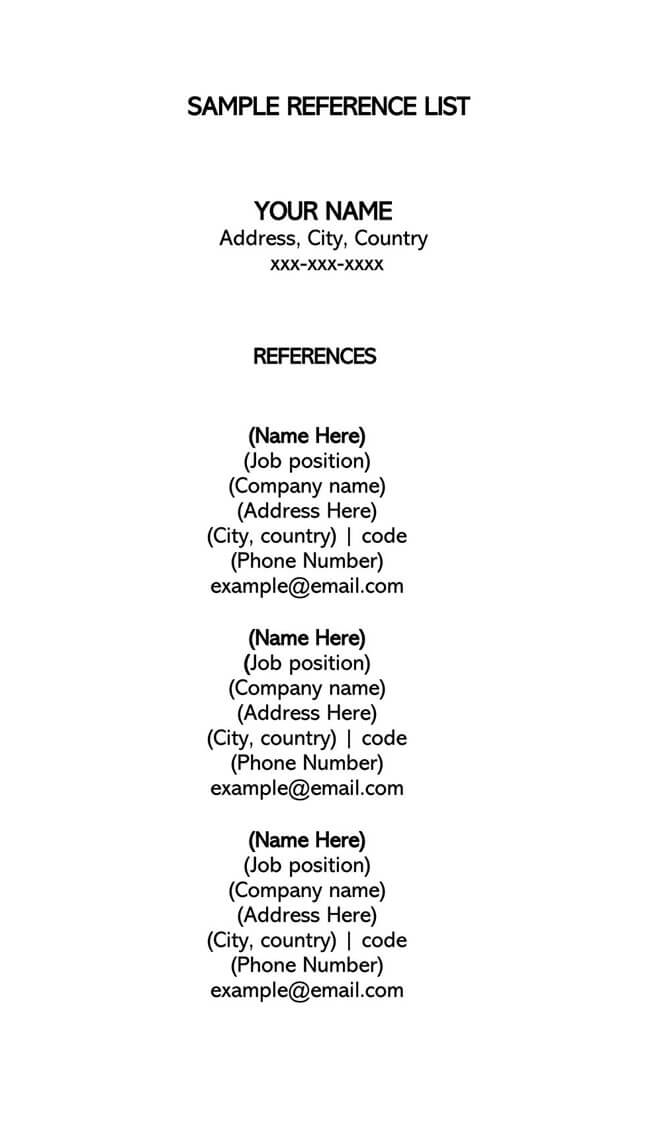
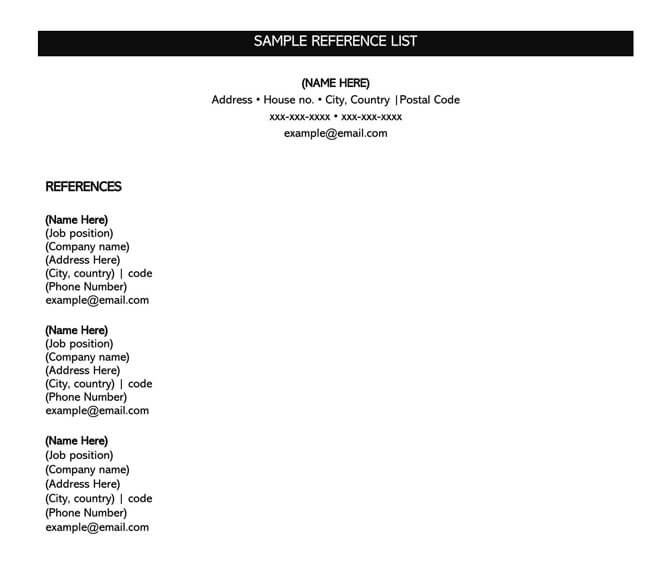
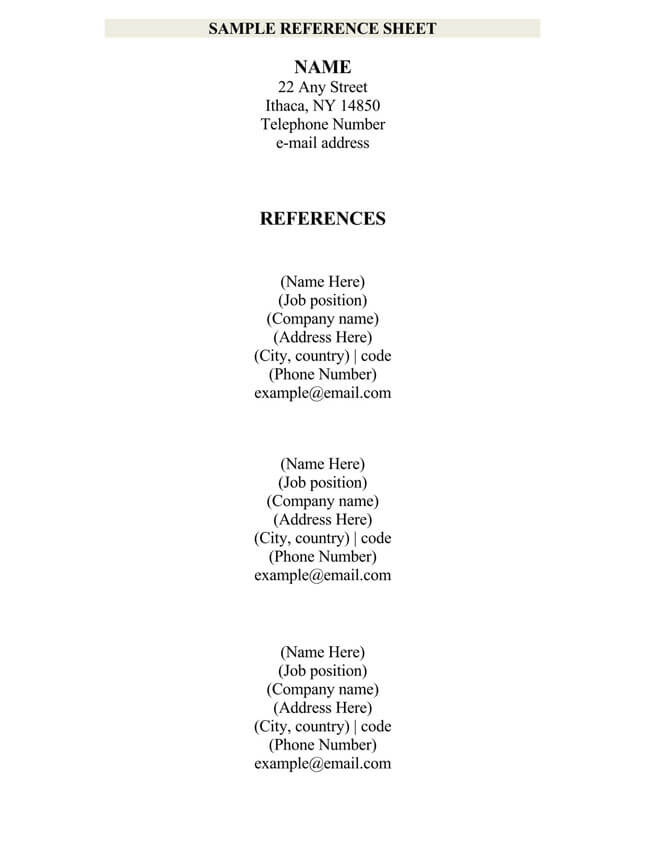
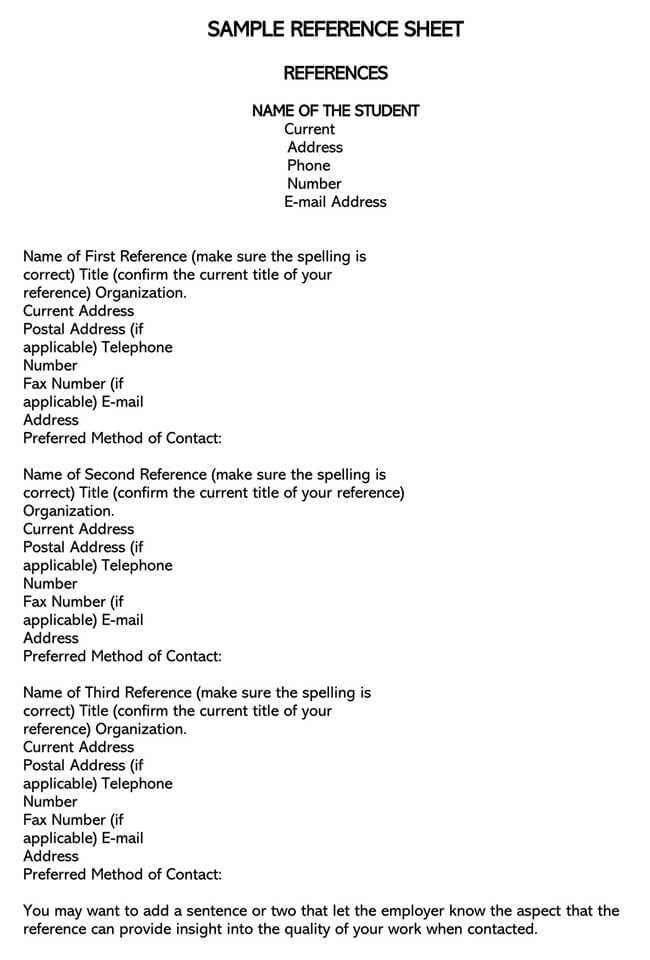
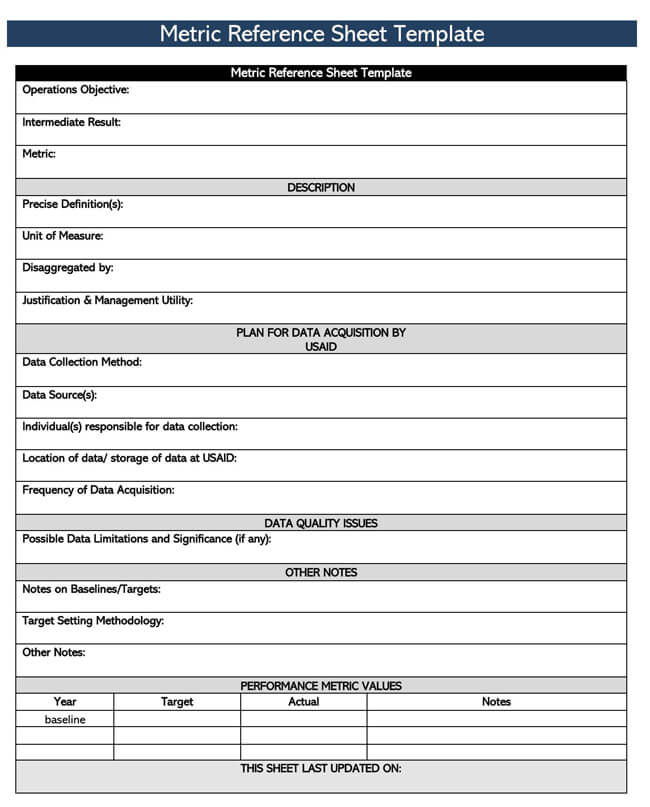
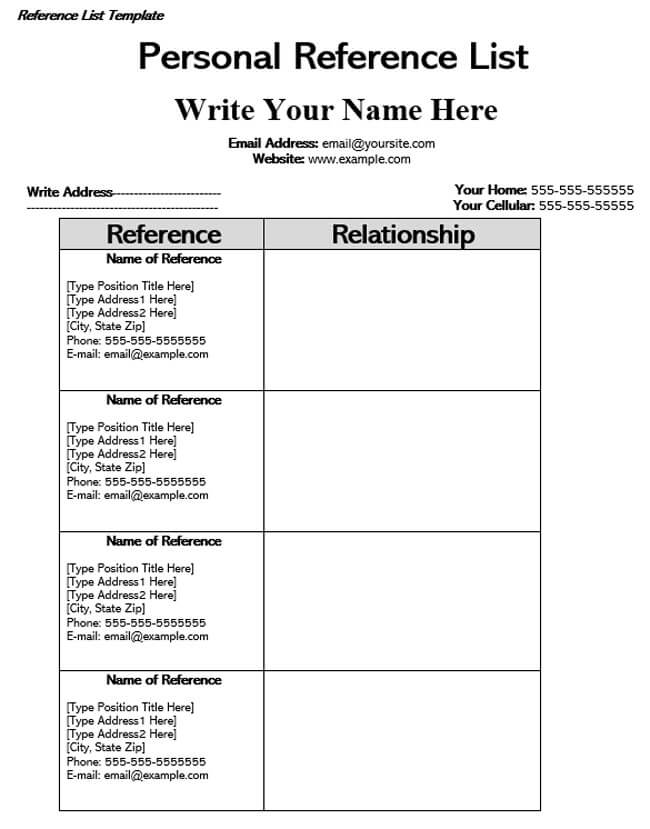
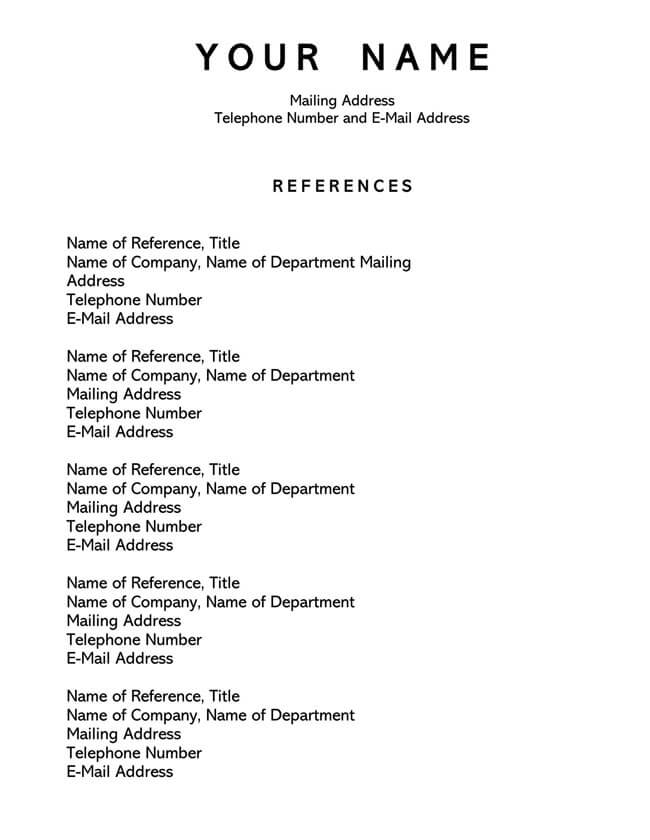
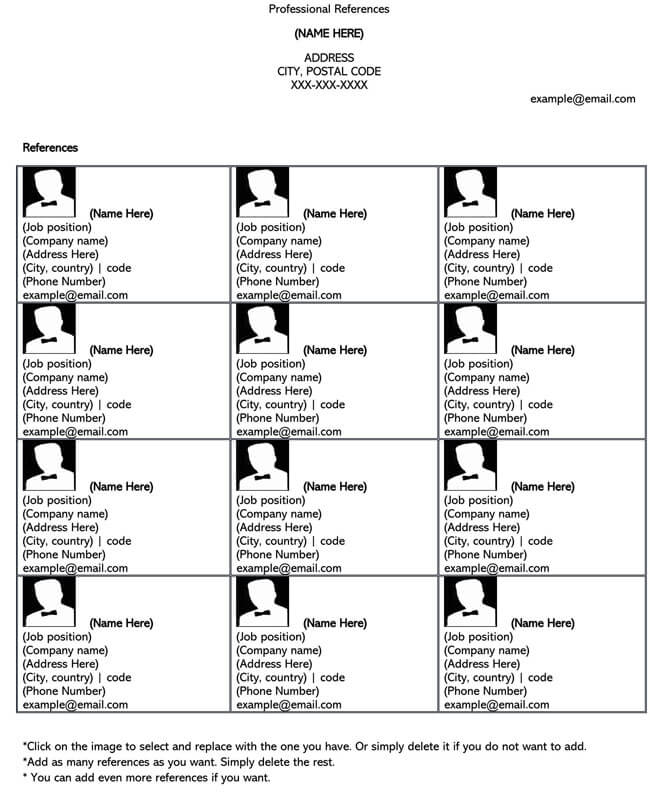
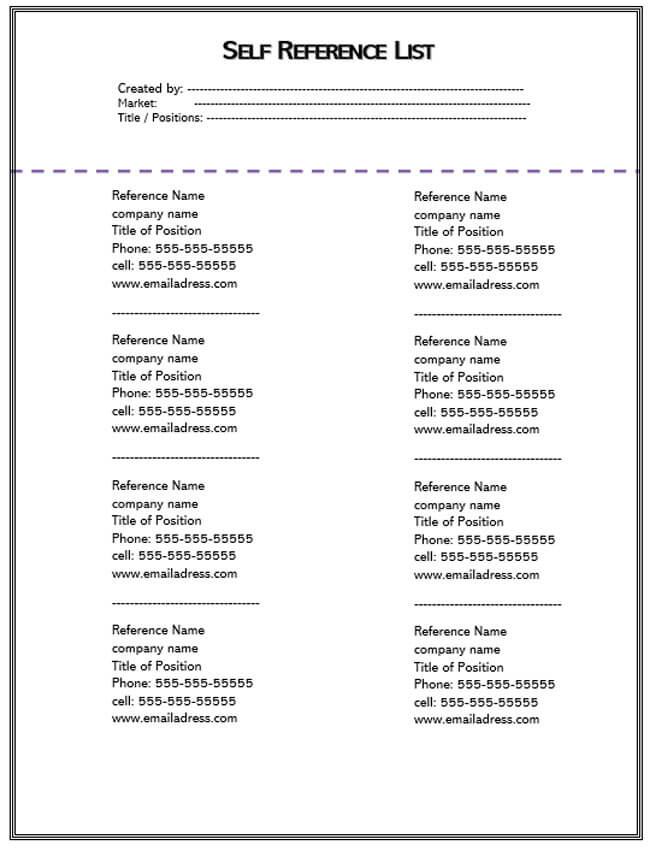
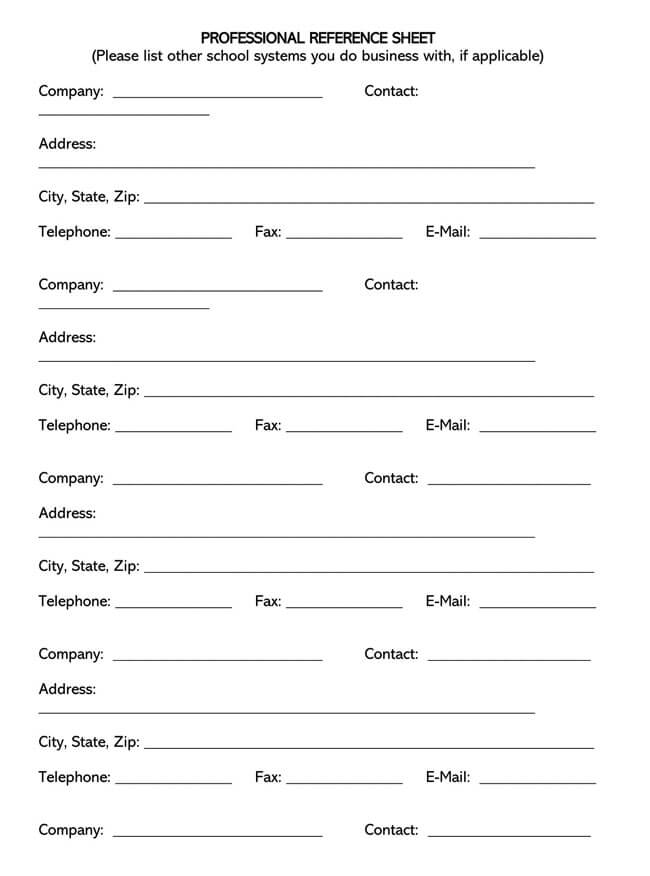
Basic Elements of a Reference Page
Your page should not be casually written as it is an essential protocol for your essay or research paper. You must include some basic elements to give your page the required level of professionalism.
Here are the basic elements you must include on your reference page:
- The names of the authors: During your research, you would use journals, books, and other media written by other authors. It Is imperative that you include the author’s name. The author’s name should be written in the accepted format which is: the last name, followed by a comma, then the first initial, then a period.
If there is more than one author, be sure to add in a comma as well as an ampersand (&) in between each name.
If, however, there is no author listed on the publication, you can use the name of the organization in place of the author’s name. And in the unlikely event that there is no author at all, you can use the publication’s title in place of the author’s name. - The Date(s) of publication: The date(s) of the publication should be placed in parentheses immediately after the name(s) of the author(s). In most cases, the year of publication will suffice. However, if the source is a newspaper or magazine article, you will need to include the days, and months, after a comma following the year of publication.
- The titles: The titles are to be written in plain text or italics. You need to follow the rules of formatting in your use of capital letters.
- Editors: If there are editors listed beside the author of the publication, be sure to use the required abbreviation: EDS., or ED. the abbreviation should be placed in parentheses after the last name of the editor.
- The Volume and Issue Numbers: Citing journal articles requires volume and issue numbers. List volume and issue numbers using numbers only and not abbreviations. Place the issue number in parenthesis and the volume number should be written in italics.
- The Page Numbers: Write the page numbers on the list using numbers only. The use of abbreviations is not allowed.
- The Places: You must list the places of publication for books and other media. Write the city, then state, you should use the two-letter state abbreviation. The first page provided on the title page should be used when listing the place.
- The Web Addresses: If you are referencing a web address, be sure to include the HTTP:// with the web address. If the web address needs to be broken into the following line, break it following a punctuation mark.
NOTE
Do not Paste the web address as a hyperlink. Your paper should not contain a direct link to another web page.
- The Publishers: The name of the publisher is written on the title page. Write the name of the publisher fully or a shortened version.
- The Retrieval Dates: If your sources are from the internet, you must include the retrieval date. You must write the word “Retrieved” followed by the date in a month day, year format.
Importance of Making a Reference Page
Making this page is a requirement for writing research papers, college assignments, and essays. However, other than fulfilling requirements, writing a page has the following importance:
Shows all the materials read and used
Writing a reference page shows the reader everything that you have read and use in your research and how you were able to write the document.
Shows the depth and extent of research
By going through your list of references, one can easily see how much research and reading you have done through the writing process. It is important to demonstrate how much research went into your document.
Allows the reader to locate the source materials
there is a great chance that your reader will investigate all the information in your paper. It is therefore important that you include your page so that the reader will easily locate the sources of your work.
Makes the work of researchers easier
Researchers generally rely on the page to find the sources they used. If your paper is to be used as a reference for similar studies and research papers, your references are even more important.
Adds credibility and supports your arguments
Whenever you make any document or paper that needs to be referenced, you would have made a study and formed some thoughts and ideas which you would put into your paper. When you add citations and their references, it supports your arguments and credibility to make such arguments.
Without your references and citation, your paper and all the information on it might not seem as substantial or as accurate. Documents written for academic purposes typically contain arguments where you are supporting a side on an issue. You would make arguments based on your evidence and facts gathered from different sources. Hence, providing a reference to your sources will strengthen your credibility to make those arguments.
Reflect academic integrity and honesty
Providing proper references to all your sources shows that you are honest in your work and everything written in your paper is honest. When you reference your work, you demonstrate giving credit where it is due and your willingness to avoid plagiarism. It is inevitable that you would make use of other people’s ideas, facts, and words, however, you will be charged with plagiarism if you do not give them their due credit.
Protects from claims of plagiarism
When you reference all your sources, it shows that you are honest about your work and the contents of your document. Citing references gives credit where it is due and ensures that you have not committed plagiarism. Making use of other people’s ideas, facts, words, or other media, regardless of their geographical location, you can be charged with plagiarism.
Plagiarism is a serious offense, and it indicates your academic integrity. As a result, the content of your paper may be rendered useless as it will be regarded as duplicated work.
Your page shows that you respect all the information used in your paper which is not yours. If you plan to have your document published or shown to the public, it is essential that you create a reference page or you will be charged with plagiarism if any other person’s work shows up on your document.
Completes essays, assignments, and research papers
The page is important if you are writing a research paper, essay, or assignment as your work is not regarded as complete unless you include a list of references used in writing the assignment, essay, or research paper.
When You do Not Need a Reference
In the course of writing your paper, you will include elements from other people’s work. These elements should of course be referenced appropriately. However, the rest of your paper should be your own ideas, opinions, and arguments. You need to reference other people’s works that show up in your paper.
If you are writing a research paper, essay, or document and the information provided is your own experience you do not need to reference such information. Also, if your information is obtained from the results of experiments that you carried out on your own, you are not expected to reference your own results. In addition, if the information is gotten from your own observations, a reference is not needed to include it in your paper.
remember
Common facts are not credited to anyone.
When you use common or general facts in your paper, it is important to note that there are no authors for common facts and as such, there is no need to cite any references.
Similarly, references should be provided on other people’s ideas and facts, however, your paper will include your own comments, ideas, thoughts, and conclusions, and these parts of your paper do not require a reference. Your observations are your original property, and you may only give credit to sources that provided the background data from which your thoughts, observations, ideas, and comments were formed if you include any of the background information in your paper.
Making your own evaluations and assessments does not require you to take from the works from other authors, and as such, you do not need to provide references for any works since you did not take any information from any works.
Making a Reference Page
When you start writing the page, certain elements must be included and other elements should be left out. However, it is important that you differentiate between the two. Also, the presentation of your page, as well as the formatting are both very important things to consider as you write the reference page.
To that effect, here are some important things to consider while writing your page:
Take notes
When you are writing your paper, it is important that you take note of every last source you used in your research. In addition, you should remember to include all the relevant information related to the source. Include the titles, dates, names, page numbers, and all other relevant information.
Your notes regarding your sources must be kept organized when writing your paper. Keep an organized separate note containing all relevant sources and information relating to them in an easily understandable manner. Ensure that all your reference materials are in one place so that you have only one place to go when you start to write the page.
Usage of source card
Using source cards for all your reference materials allows you to easily assess your sources whenever you need any information about them on your page.
A source card is a small card containing all the relevant information about your source.
Once you have written your sources on a card, place all your source cards in a safe place. Arranging your source cards in alphabetical order makes it easier to retrieve information and compile your page.
Keep track
It is important that you keep track of all the sources you use. You usually only must include cited or paraphrased sources in your document. Take note of sources you have cited and differentiate them from sources you only used for background reading materials.
Include sources
In some cases, you may have to include sources that were crucial to your argument. Even if you do not cite these sources in your writing, you will need to include them in your paper, however, they will not be on the page, rather, they will be on a separate page dedicated to background references.
note
Your reference page is meant to be at the end of your paper, right before the appendix or glossary. You need to place the separate page immediately after the last page of the document.
Know the format
It is important that you format your list of references accordingly. Schools have set specific formats and standards and these standards should be adhered to. It is important that you carry out some research on formats so that you can identify the appropriate one for your paper.it is important that you use the appropriate referencing for your references so that you do not have to change it because of the wrong format.
remember
If you typed your paper with double spacing, you need to do the same for your the page.
When typing the content of your page, be sure to use proper spacing and indentation. Once you have written all the references, be sure to revise the page as much as you need to until you are certain that the spacing and formatting are correct. Be sure to use hanging indentation on your page.
Use other resources when you are learning to format more complex sources. You can easily find sample references online. These sample references have different sources. You will be able to get a clearer picture of how the resources are listed and how they are formatted.
Alphabetical order
The authors should be listed on the page in alphabetical order. Once you have finished typing in the included references, be sure to organize the list in alphabetical order, the last names of the authors should be used.
If the Source does not have an author, make use of the first part of the title when alphabetizing it.
If you need to cite a source with no author, you can use the first part of the title when alphabetizing your page. If you must cite different works from the same author, organize the works, using their titles to arrange them alphabetically.
Include each resource
Be sure to include every resource used in writing your paper. The reference page is not a compilation of all the sources you had cited and failure to reference a cited source exposes you to the risk of getting charged with plagiarism even if it was an unintentional error or omission.
Referencing books
Learning how to reference books accordingly is essential as well as following the correct style guide. There are 2 common styles often used when referencing books. Both styles make sure that the date of the book is close to the beginning of the reference.
Referencing journal articles
You should also learn how to reference journal articles. It is imperative that you follow the correct style guide recommended for referencing journal articles
Professional Key Points
Your reference page is a vital part of your paper, an as such, there are quite a few thing s to consider as you write the page. Not only is your reference page an important ending for your paper, it is also a sensitive section of the paper, subject to a lot of scrutiny. The best approach to writing this page is to pay close attention to every detail in order to avoid small mistakes.
Here are a few quick tips that can help you as you write this page:
- The placement of the page is important. It must be placed immediately at the end of the paper, on a new and numbered page.
- Place the title of the page on top. Make it centered with a bigger font.
- Be sure to use double-spacing throughout the whole page.
- Arrange your sources alphabetically. Use the authors’ last names in this arrangement.
- Indentation should not be used on the first line. However, it can be used on the lines following the first line of your reference. This is known as hanging indent.
- The lines that follow the first line should be indented half an inch from the left margin for correct indentation.
- Authors’ names must be inverted with the last names coming first, then the first names. Up to seven authors can be written on a single source. However, if the source has more than seven authors, list the first six authors, then from the seventh author, use ellipses. After the ellipsis, you may add the last author’s name.
- If a single author has different articles in your references, you should list the articles in chronological order. List the articles with the earliest article first and follow it up according to the dates of the articles.
- Be sure to write out the full titles of books, articles, and journals in your references.
- You must use all punctuation marks and capitalizations used in the titles of journals.
- Capitalize the most important words in the titles of journals.
- Capitalize only the first letter of the first word in a title and subtitle, the first word after a dash or colon in the title and any proper nouns included when making a reference to books, chapters, web pages, and articles.
- If you are writing a compound word, you do not have to capitalize the second word when the second word is being hyphenated.
- Longer titles such as books and journals must be italicized.
- Shorter and simpler work titles like essays or journal articles should not be underlined, italicized, or quoted.
Frequently Asked Questions
A professional reference is anyone that has written works such as books, journals, journal articles, essays, or other relevant works that are recognized professionally and credited to the author. If you must use any of their work in your paper, you must reference their work properly to give credit where it is due.
Your friend can be a professional reference if they fit into the criteria of having a recognized piece credited to them as the author. Citing your friend as a reference is important due to the integrity of your work. Readers who are familiar with your friend’s work would easily recognize elements of your friend’s work in your paper which may undermine your integrity.
Key Takeaways
The reference page of any professional paper is a sensitive part of the paper that must be written meticulously without leaving out any elements or sources. The formatting of the page should also be done correctly with consideration to all recommendations and rues. This why we have provided our meticulously formatted and well-written template to help you write a perfect reference page for your work.

